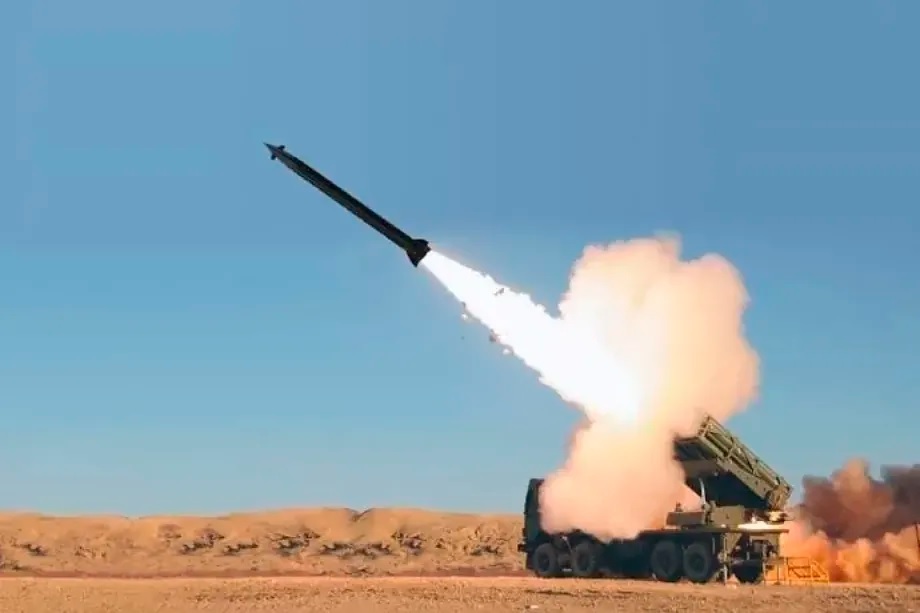"It is impossible to stop buying Israeli technology, it would make us a vulnerable country." This is how a serving general who requests anonymity expresses himself categorically, stating that canceling contracts or not signing more would "hinder and slow down modernization programs." "Others would need to be canceled directly," he emphasizes.
Despite the Government's claim that it does not purchase weapons from Israel since the outbreak of the armed conflict in Gaza, Spain has acquired defense and security material from Israeli companies worth over 1,000 million euros since then, according to an analysis by the Centre Delàs d'Estudis per la Pau based on data from the State Procurement Platform.
Israel is the second-largest defense investor in the world. Its military technology, especially in telecommunications and cybersecurity, is among the most advanced. It supplies the EU, with which it has a partnership agreement, and the US. It has even forged alliances with the United Arab Emirates and Morocco, which in 2020 signed agreements to normalize relations with Israel. Spain is aware of Israel's superiority in these sectors, with its technology infiltrating rearmament programs worldwide, and confirms contracts for its factories to provide material for defense purposes. The cancellation of the purchase of ammunition worth six million euros represents a small percentage of all Defense programs that move forward with Israeli technology.
Despite Sumar focusing on this contract, published during Holy Week on the State Procurement Platform, there are many Defense programs, some of them Special Modernization Programs, that require Israeli technology to move forward and commit over 1,000 million.
Last Tuesday, in the Council of Ministers that approved the Industrial and Technological Plan for Security and Defense, 350 million euros were allocated for the Joint Tactical Radio System (SCRT), which will provide the necessary communication capabilities to ensure secure information exchanges. It is an Israeli program that is intended to be implemented.
In December, the State Procurement Platform published an agreement with the Israeli company Elbit Systems to acquire the embarked mortar cardom. The company Guardian Homeland Security will provide level IV ballistic plates to the Ministry of the Interior, as agreed on April 13. With just this company, one of the State's trusted suppliers when it comes to incorporating Israeli material into State Security and representing Israeli arms companies, the Ministries of the Interior and Defense have formalized eight contracts since the Gaza war began, totaling almost two million euros in portable X-ray and X-ray systems, lighting, fireproof hydration backpacks, and bulletproof clothing, as detailed by the State Procurement Platform.
Defense also awarded a two-million-euro programmer contract to the Israeli armaments company IMI a few months ago, which is behind the ammunition contract that the Government has now rescinded.
In September 2023, the Council of Ministers authorized an increase in the spending ceiling to modernize the Teruel rocket launcher system and replace it with the SILAM, mounted by the Spanish Escribano with Israeli technology: it is impossible to do without it to move forward with the rocket launcher, a program worth 714 million euros. In November 2023, Spain closed the acquisition of 1,680 Spike anti-aircraft missiles, mounted by the Israeli company Rafael: the contract amounts to 285 million euros.
The new Eurofighters that Spain has purchased from Airbus as part of the Falcon I and II programs are equipped with the Israeli Rafael Litenin V laser designation pod, which the Government acquired last March for 204 million euros.
Rafael also mounts the 12.7 mm Mini Samson remote tower on the Castor sapper vehicle. Samson turrets are also present on the RG-31 Nayala armored vehicles, of South African origin. These turrets, which allow for automatic or remote-controlled firing, are the ones Israel wanted to install on its border with Gaza to prevent terrorists from entering.
But the Spanish Government not only buys weapons from Israel to arm the armies. Since 2011, there has also been an intelligence agreement regarding the protection of classified information between the two countries. Spain and Israel have very good relations between their intelligence services, the CNI and the Mossad, as well as with the country's internal intelligence service. There is not only a flow of information exchange but also collaboration agreements in technological matters. The most well-known of these is the Pegasus system, the software used to infect the mobile phones of some politicians to track their movements during the independence movement.
Despite the controversy surrounding the latest ammunition purchase, the Guardia Civil contract is almost anecdotal within the ties that bind Spain to the Israeli military industry. Elbit has a technological alliance with the Spanish company Escribano, a partner of the Government in Indra, and the German Rheinmetall for the manufacture of rocket launcher systems, and recently the Spanish also conducted tests with their anti-drone technology. The rocket launcher systems contract alone amounts to around 700 million. However, since on paper these are two European companies and Elbit does not appear in the procurement portal, the controversy has been much less and has almost been confined to Córdoba, the city where the factory will be built to produce these vehicles.
Elbit does not seem to give much weight to a possible boycott of its products in Europe, its second market after its home country, as its CEO Kobi Kagan recently advocated taking advantage of European rearmament. "With dozens of subsidiaries in Europe, we are well positioned to meet this growing demand," he emphasized in his latest presentation.
However, Elbit is far from being the main Israeli contractor for Defense. That honor goes to Rafael Systems, through its Spanish subsidiary PAP Tecnos. Their latest major contract was signed in November 2023, during the Gaza clashes, amounting to 237.5 million euros in exchange for 168 anti-tank missiles. At the time, Sumar proposed its cancellation through a question to Congress, but the department led by Margarita Robles has always argued that the mandate was granted before the blockade.
